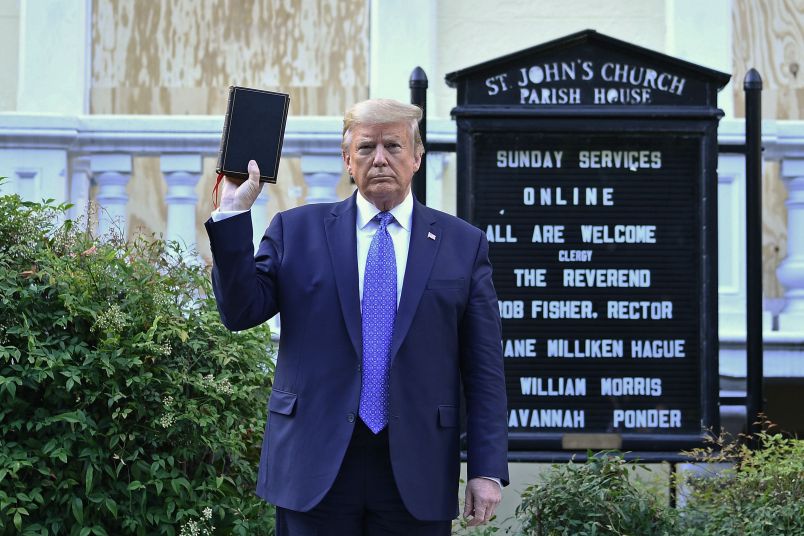It started with a tweet on Thursday morning, as many Trump stories do.
President Trump referred to the U.S. Secret Service as the “S.S.” in a tweet about recent protests around the White House — an abbreviation that is historically recognized as the shorthand Adolf Hitler used for the Nazi Party’s paramilitary organization.
The tweet applauded National Guard troops, D.C. police and the U.S. Secret Service for their handling of protesters presumably during the Lafayette Square debacle that has since been widely condemned by many military leaders and defense officials for the excessive use of force on demonstrators.
Twitter was immediately ablaze over Trump’s incendiary remarks — not only for again praising how force was wielded that day, but also for appearing to ignore the common abbreviation for the Secret Service — “USSS” — in favor of a historically problematic one.
Oh, one more point. It's USSS. Not SS.
The SS were Nazis. Please don't use that acronym ever again when describing the Secret Service. https://t.co/YWR5g1AJ3Y
— Bradley P. Moss (@BradMossEsq) June 11, 2020
While the term “S.S.” is a widely recognized as referring to the Nazi group, some questioned whether Trump knew of its origins and was astute enough to draw such a link between American secret service officers and Nazi police.
Donald Trump does not know the historical implications of "S.S." because he is the most incurious, ignorant dolt to ever assume the presidency https://t.co/84oy0Az0KF
— Abe Silberstein (@abesilbe) June 11, 2020
An op-ed contributor to The New York Times, Wajahat Ali, called it “a classic case of projection,” suggesting that the omission of “US” perhaps signaled more ominous desires by Trump to imitate the WWII era dictator.
In a classic case of projection, Trump just abbreviated the United States Secret Service as S.S.
Not USSS.
But S.S.
You know, the Nazi paramilitary forces.
— Wajahat "Social Distance Yourself" Ali (@WajahatAli) June 11, 2020
Still others, like London-based author Umair Haque, went as far as to say the reference represented a kind of “loud and clear” signaling of supremacy and fascism.
Trump isn’t using the word SS in some kind of accident or gaffe. He’s signaling his supremacy and fascism loud and clear. Just as he is with a rally on Juneteenth. He is telling you exactly who he is and what he wants
— ❤️ (@umairh) June 11, 2020
Trump has also been criticized for an announcement from his campaign on Wednesday that the president will stage its first rally in months in Tulsa, Oklahoma, on June 19th — “Juneteenth” — a day that commemorates the end of slavery. The location is historically significant and a dubious selection because that is where a white mob killed hundreds of black people in what is now known as the “Tulsa Massacre” in 1921.



